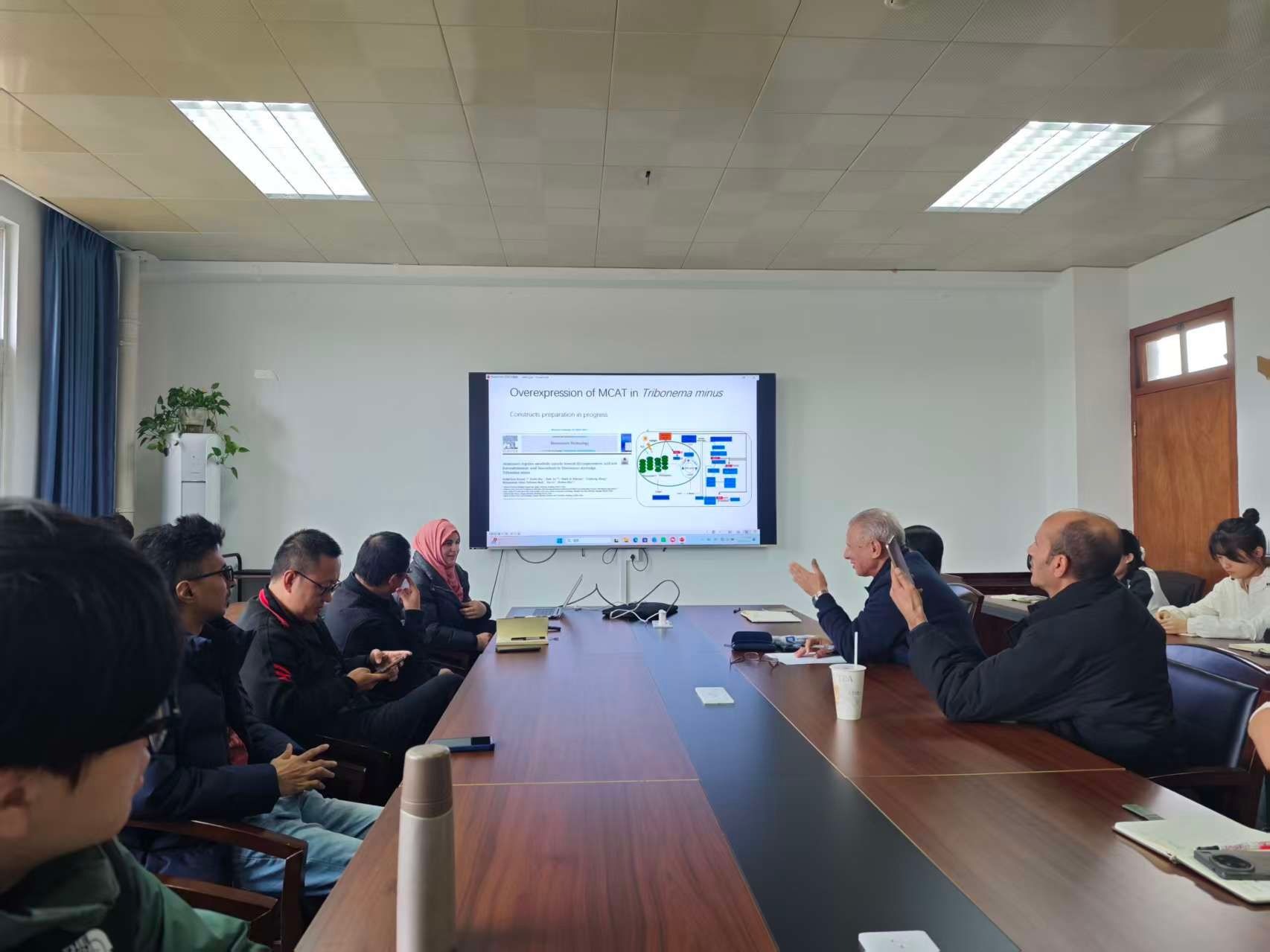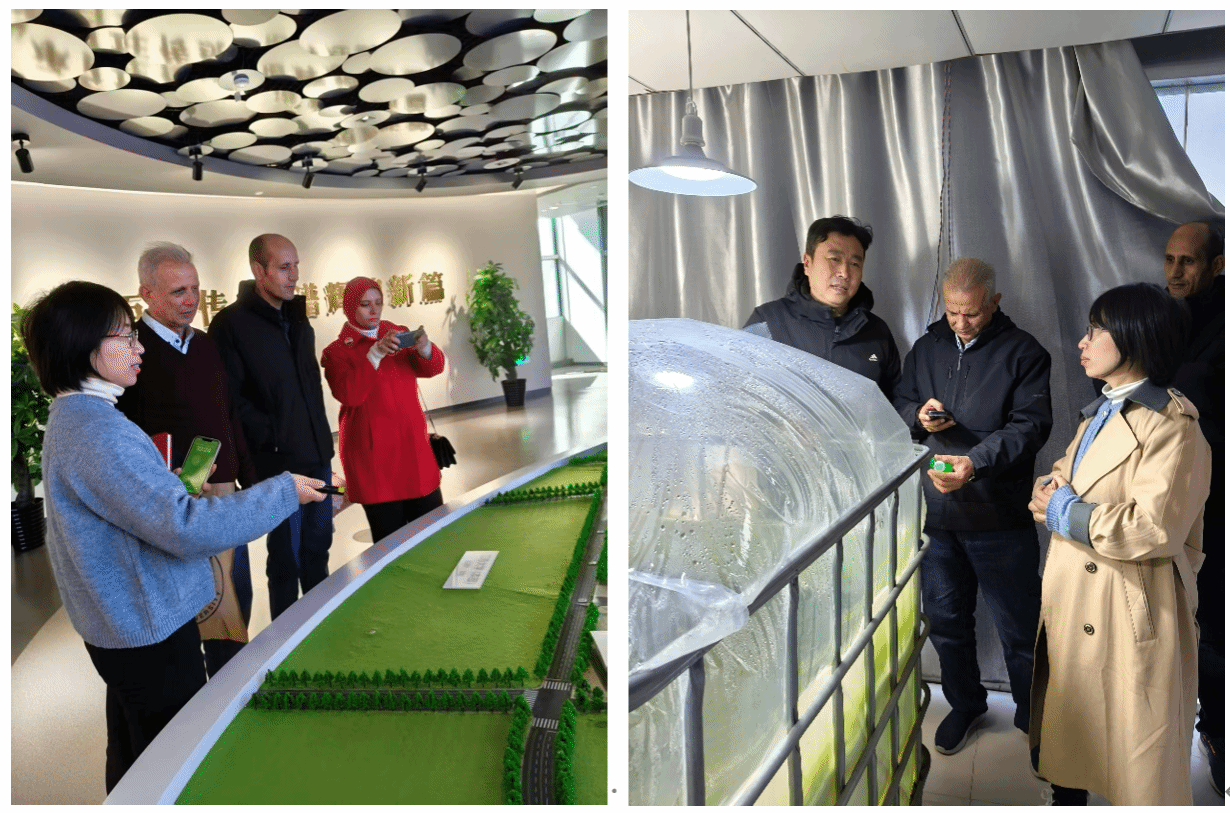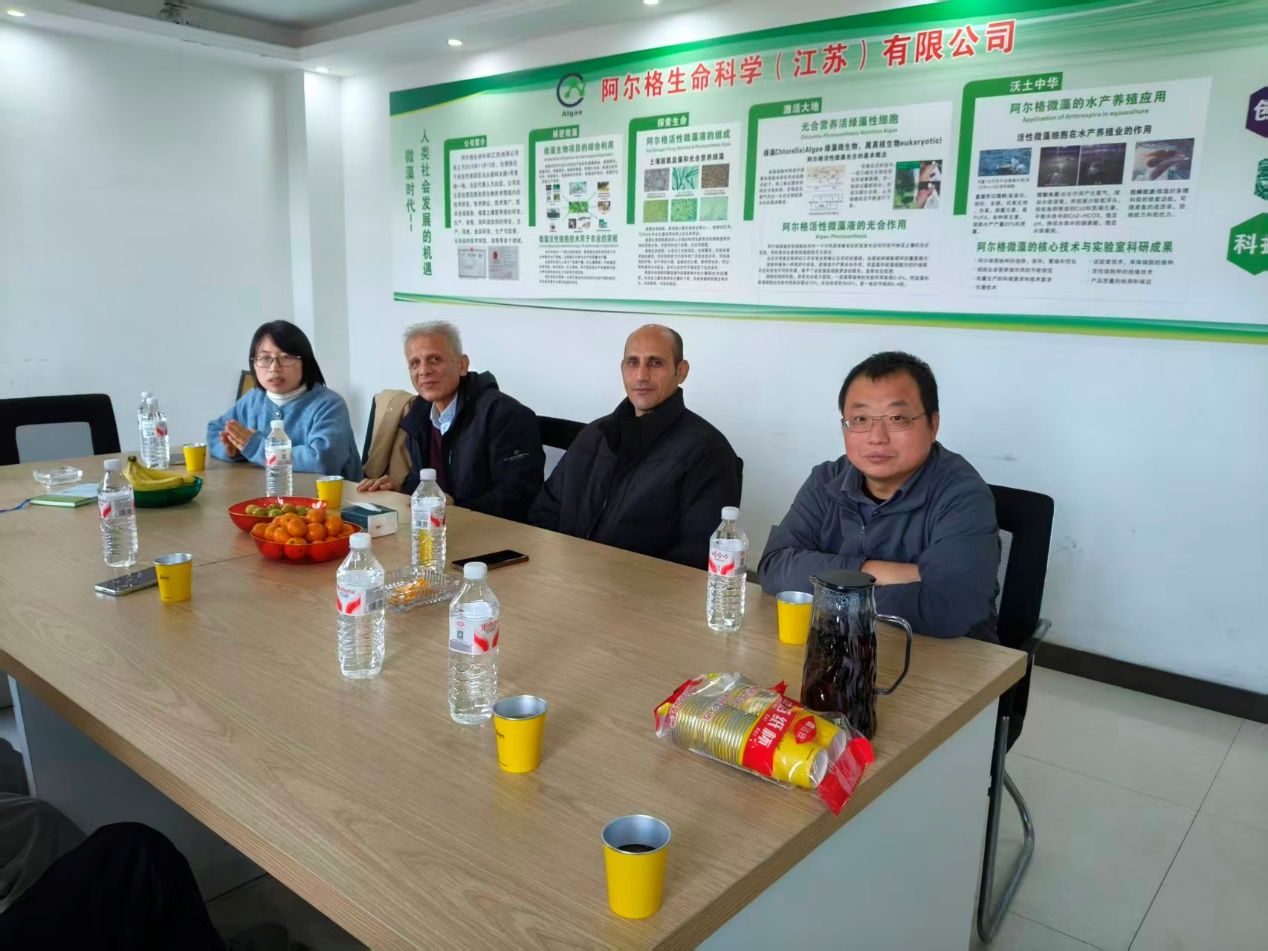
During the exchange meeting, the School of Food and Biological Engineering at Jiangsu University extended a warm welcome to the Egyptian delegation. Professor Huo Shuhao first introduced the background and significance of the project, noting that saline-alkali soil is a major constraint to global agricultural production. He emphasized that rice–wheat rotation systems face yield limitations under saline conditions, and that utilizing nitrogen-fixing cyanobacterial flocs to regulate phosphorus transformation and enhance crop rotation efficiency is a key direction for saline-alkali land remediation and sustainable agricultural development. As a leading authority in applied phycology, Professor Mostafa El-Sheekh highly recognized the research value of the project. He shared Egypt’s experience in saline-alkali land improvement and the latest research progress of Tanta University in algal studies, stressing that microalgae—characterized by rapid growth and strong adaptability—hold great potential for soil improvement and agricultural applications. Professor Khalil Saad-Allah offered constructive suggestions from a technical perspective, focusing on the detailed design of the research.
The two sides engaged in deep discussions on the role of microalgae within an integrated “engineering–chemical–biological” improvement system. Professor Huo’s team introduced their latest research progress on phosphorus transformation regulation by nitrogen-fixing cyanobacterial flocs. Through screening of efficient strains, the team demonstrated the flocs’ ability to absorb and transform soil phosphorus, improve soil fertility, and promote rice and wheat growth. The Egyptian team shared their experience in developing microalgae-based feed and fertilizers, and both sides reached consensus on synergistic mechanisms of microalgae-assisted soil improvement, large-scale production, and application, providing solid support for optimizing the integrated improvement system.

During the visit, Professor Huo’s team accompanied the Egyptian delegation on field trips to Alg Life Sciences Co., Ltd. in Huai’an, Jiangsu Province, the National Innovation Center for Comprehensive Utilization of Saline-Alkali Land in Dongying, Shandong, and the Yellow River Delta National Agricultural High-tech Industry Demonstration Zone. At the Huai’an algal fertilizer factory, the experts toured the full process of microalgae cultivation and processing, exploring potential collaboration on joint R&D and market promotion of new algal fertilizers. In Dongying and the Yellow River Delta, they inspected saline-alkali land remediation demonstration projects. Professor El-Sheekh highly praised the local achievements, noting that China’s experience offers valuable insights for Egypt. Both sides preliminarily reached an intention for cooperation on technology development and result transformation.

This exchange significantly advanced the implementation of the China–Egypt saline-alkali land cooperation project, laying a solid foundation for long-term agricultural science and technology collaboration between the two countries. Looking ahead, Jiangsu University and Tanta University will deepen cooperation in areas such as saline-alkali land management, cyanobacterial resource utilization, and green agriculture. The two institutions plan to jointly apply for international research projects, carry out collaborative research, share scientific outcomes, and promote mutual exchanges of graduate students and young faculty to cultivate globally oriented agricultural science and technology talents. (School of Food and Biological Engineering)

